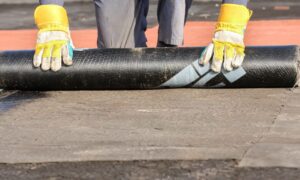The water heater is one of the most important yet often overlooked appliances in any household, observes Legacy Realty & Management experts. From taking warm showers on chilly mornings to running dishwashers and washing machines efficiently, a well-maintained water heater plays a crucial role in providing comfort and convenience to your home.
But like any appliance, water heaters don’t last forever. Regular maintenance is key to ensuring that your water heater runs efficiently and lasts for as long as possible. In this article, we’ll delve into the importance of water heater maintenance, the signs that your water heater might be in trouble, and practical tips to keep it working in peak condition.
Why Water Heater Maintenance is Essential
1. Energy Efficiency
A neglected water heater can lose its efficiency over time. Sediment builds up inside the tank, reducing the heater’s ability to maintain water temperature effectively. This means that your unit has to work harder, consuming more energy in the process. Regular maintenance, such as flushing the tank, helps remove these deposits, improving efficiency and keeping your energy bills under control.
2. Extending the Lifespan of Your Water Heater
The average water heater has a lifespan of 8-12 years. However, without proper maintenance, it could fail well before then. Small problems like a failing thermostat or a minor leak can escalate into major issues that require costly repairs or even full replacement. By addressing these issues early through routine maintenance, you can extend the life of your water heater and avoid expensive replacements.
3. Preventing Unexpected Breakdowns
There’s never a convenient time for your water heater to stop working. An unexpected cold shower is an unpleasant surprise, especially during winter. Regular maintenance reduces the risk of sudden breakdowns and helps ensure that your water heater is always ready when you need it.
Signs Your Water Heater Needs Attention
Even with regular maintenance, problems can sometimes occur. Here are some warning signs that your water heater may be in trouble:
1. Inconsistent Water Temperature
If your water heater is struggling to maintain a consistent temperature, fluctuating between too hot and too cold, it could indicate an issue with the thermostat or a buildup of sediment in the tank. Both problems require attention to restore proper function.
2. Strange Noises
If you hear rumbling or popping sounds coming from your water heater, it’s often a sign that sediment has accumulated at the bottom of the tank. As the water heats up, trapped air bubbles in the sediment cause these noises. If left unchecked, sediment buildup can lead to overheating and damage to the tank.
3. Leaks Around the Tank
Water pooling around your water heater is never a good sign. Leaks can be caused by a variety of issues, including a loose valve, rust, or cracks in the tank. Even a small leak can escalate quickly, so it’s essential to address it as soon as you notice it.
4. Rusty or Discolored Water
If the water coming out of your faucets is rusty or discolored, it could mean that your water heater’s tank is starting to corrode. While flushing the system might help, rust usually indicates a more serious problem that could require replacement if not handled promptly.
5. Decreased Water Pressure
A sudden drop in water pressure, particularly when using hot water, could be related to the water heater. Sediment buildup or pipe blockages might be obstructing the flow of water, reducing the pressure.
Practical Maintenance Tips for Water Heaters
Now that we’ve covered the importance of water heater maintenance and the signs of trouble, here are some practical tips to keep your unit in optimal condition:
1. Flush the Tank Annually
Over time, minerals and sediment accumulate in the bottom of your water heater’s tank. These deposits can reduce efficiency and cause wear and tear on the system. Flushing the tank once a year helps remove sediment buildup, improving performance and prolonging the life of your heater.
To flush the tank, start by turning off the power or gas supply and attaching a garden hose to the drain valve. Drain the water into a bucket or outside until it runs clear.
2. Check the Anode Rod
The anode rod is a critical component in your water heater that prevents rust from forming inside the tank. This rod attracts corrosive elements in the water, keeping them away from the tank walls. However, the anode rod wears down over time and should be inspected regularly. If it’s significantly corroded, replacing it can help extend the life of your water heater.
3. Test the Pressure Relief Valve
The pressure relief valve is a safety feature that releases pressure if the water heater becomes too hot or over-pressurized. To ensure it’s working correctly, lift the valve’s lever to allow water to flow out and then release it. If the water continues to flow or nothing happens at all, the valve may need to be replaced.
4. Set the Temperature Correctly
Keeping your water heater’s temperature at the recommended setting of 120°F not only improves efficiency but also reduces the risk of scalding and saves energy. Setting the temperature too high can lead to overheating, while setting it too low might result in insufficient hot water for your household.
When to Call a Professional
While regular maintenance can help prevent many issues, some problems require the expertise of a professional plumber. If you’re dealing with any of the following situations, it’s best to call in the pros:
1. Frequent Repairs
If your water heater seems to need frequent repairs or isn’t performing as it should, it might be nearing the end of its lifespan. A professional plumber can assess whether it’s more cost-effective to repair or replace the unit.
2. Leaking Water Heater
A leaking water heater is a serious issue that needs immediate attention. Water damage can quickly become expensive, and if the tank is leaking, it may need to be replaced.
3. Pilot Light or Burner Issues (For Gas Water Heaters)
If your gas water heater’s pilot light keeps going out, or the burner isn’t working correctly, there could be a problem with the gas supply or the thermocouple. In this case, it’s best to have a professional water heater service inspect and fix the issue.
Conclusion
A well-maintained water heater is essential for a comfortable and efficient home. Regular upkeep not only ensures that you’ll always have hot water when you need it but also prolongs the life of your appliance and saves on energy costs. If your water heater requires professional care or you’re unsure about maintenance tasks, don’t hesitate to reach out to Pilot Plumbing, Heating, and Cooling, a trusted local expert in plumbing services.
By staying on top of routine maintenance, you can avoid costly repairs, keep your energy bills in check, and enjoy a reliable supply of hot water for years to come.
Read More From Techbullion



































